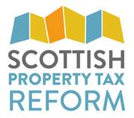On Commencing the Scottish Local Tax Review
Yesterday, the membership and remit of the Scottish Commission on Local Tax Reform was announced. And at the same time a group of interested observers set up an independent network promoting the case for a property tax (Scottish Property Tax Reform). I am a member of the latter body.
Drawing from the Scottish Government’s press release, the Commission’s Remit is: “To identify and examine alternative systems of local taxation that would deliver a fairer system of local taxation to support the funding of services delivered by local government”. They go on to say that in doing so, the Commission will also consider:
• The impacts on individuals, households and inequalities in income and wealth;
• The wider macro-economic, demographic and fiscal impacts, including housing market and land use;
• The administrative and collection arrangements that apply, including the costs of transition and subsequent operation;
• Potential timetables for transition, with due regard to the 2017 Local Government elections.
• The impacts on supporting local democracy, including on the financial accountability and autonomy of Local Government;
• The revenue raising capacity of the alternatives at both local authority and national levels.
The Commission is co-chaired by the local government minister Marco Biagi and by Dave O’Neill, the President of COSLA.. The Commission also includes a number of councilors form different parties, urban and rural, the shadow spokesman for local government (Alex Rowley), Andy Wightman, representing the Greens, plus specialists representing taxation & law, public finance & accountancy, Citizens Advice and also Jim McCormick (Joseph Rowntree Foundation) and Angela O’Hagan (Institute for Society and Social Justice Research). The Scottish Tories declined to participate because they are separately working on a low tax commission.
In conducting its work, the Commission will engage with communities across Scotland to assess public perceptions of the emerging findings and to reflect this evidence in its final analysis and recommendations. The Commission will be supported by an independent secretariat comprising staff seconded from COSLA and the Scottish Government. The Commission aims to report to the Scottish Government and COSLA in the autumn.
And what about our network, chaired by Mark Stephens and set up in response to the Commission? Paraphrasing from its press release, as the Scottish Government establishes its Commission to seek an alternative to the Council Tax, this independent network seeks to make the case for a fair system of property taxation. Scottish Property Tax Reform (SPTR) is a network of interested individuals and organisations who believe that a well-designed system of property taxation can and should play an important role in public finance, the economy and a fair society. SPTR aims to inform and influence the work of the commission established by the Scottish Government to examine possible replacements for the Council Tax.
The Network, while looking for more to join, is presently composed of academics like Mark Stephens, Richard Kerley, Glen Bramley, Mike Danson, myself and also Jim Gallagher and Andy Wightman.
What are our underlying arguments? Drawing from the press release we believe that a fair system of property tax should form the basis of local government taxation because:
• Property is fixed and space, is immobile, and so is easy to tax. This means that, unlike many other taxes, property taxes cannot be so easily dodged by wealthy people by moving themselves or their companies abroad. They have to pay their share along with everyone else.
• Property taxes can help to make housing more affordable – reversing the trend that has priced more and more people being out of housing. Property taxes reduce boom-and-bust cycles in the housing market.
• Property taxes help society to recoup some of the benefits that some people receive because they are lucky enough to live close to new infrastructure or other amenities. They do this because the value of property rises when the area they’re located in benefits from public investment.
• Property taxes encourage people to invest in the productive economy, ensuring a prosperous future for us all. We all know that ever more inflated house prices doesn’t make us any better off in the long run.
A well-designed property tax (i.e. definitely not the current council tax or a reformed one based on additional bands) should incorporate the following principles.
1. Property taxes should be revalued automatically and frequently. One of the reasons the Council Tax is unfair is that it is based on property values that are nearly a quarter of a century out of date. You wouldn’t expect to pay income tax based on what you earned in 1991!
2. Property taxes can be designed better to deal with anomalies that have been found with previous forms of local taxes:
– Direct help toward low-income households
– Deferring tax payments for asset rich/ cash poor households
– Regular statutory revaluations
– Combining property and other taxes, common elsewhere, can raise the same yield.
If you’re still not convinced, think of it the other way round – not taxing property will simply encourage more wealth holding and speculative activity in property simply because it is untaxed.
Interesting times ahead. While we in the network share a common interest in supporting the place and value of property taxes, we will inevitable differ in the details and will probably in our different ways contribute to the debate as individuals and in other ways too. For my part I fully expect that Policy Scotland will submit evidence to the Commission. I also hope that as an individual I will write for the SPTR.
Note: SPTR has just formed but there will be a website containing information and briefings in place shortly. Google it.
